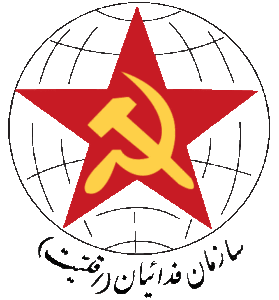Strong steps of the labour movement, revolutionary prospect
 Labour protests and strikes are spreading continuously. Workers class struggle is advancing with strong and unwavering steps towards higher phases, and is now in a stage that political pressure and the police state, threats and intimidation, and the use of violence, imprisonment and torture, and economic hardship, none can prevent its rise. Numerous strikes and marches shows this fact.
Labour protests and strikes are spreading continuously. Workers class struggle is advancing with strong and unwavering steps towards higher phases, and is now in a stage that political pressure and the police state, threats and intimidation, and the use of violence, imprisonment and torture, and economic hardship, none can prevent its rise. Numerous strikes and marches shows this fact.
Just highlights of the labour movement in the current month are as follows.
Haft-Tappeh Sugar Cane Factory
Workers Haft-Tappeh Sugar Cane Factory in southern Khuzestan Province went on strike on 31 January. They have been on strike many times this year. Lies and empty promises, intimidation and the employer-hired stooges’ attempt on Esmail Bakhshi, the representative of the workers and the managers’ vain efforts to divide workers could not weaken the workers’ unity and decision for pursuing their demands. In the fifth day of the strike, the anti-riot police and other security forces brutally attacked workers and beat them. They arrested 34 workers, including the workers representatives. By this atrocious assault, the employer, as well as the supporting government authorities, could not intimidate the workers. They did not go back to the work. On 5 February, all workers from all departments of the factory unanimously went on strike, and even retired workers supported the strike. Women workers and wives of the striking workers also joined the picket. They even went further and took the control of the sugar depot of the factory on 7 February. They unloaded trucks and stopped sugar shipments to be transported out of the factory. In this way, workers in Haft-Tappeh showed their will and ability to control the factory and exercise their management.
Hepco Factory
Workers in Hepco Factory, which manufactures road construction machinery, continued their struggles. In early 2017, the factory was privatised. The private owner could not keep his promises on paying arrears. In late September 2017, Hepco workers held a joint demonstration with Azarab Factory workers. The government tried to respond the strike and march with an iron hand. Owing to the vast condemnation of the police’s violence, Labour Minister Ali Rabiei had to appear among the workers and promised to meet their demands. Following the protests, the factory was assigned to the state-run Privatisation Organisation, and again the workers were promises their arrears would be paid. Simultaneously, security and judicial measures against the workers were intensified. The court summoned 20 striking workers. The employer tried to silence the the workers by labelling them as “terrorists”! However, none of workers by labelling them as these brutal measures and malicious charges could frighten Hepco workers and stop their struggles.
On 5 February, Hepco workers went on strike again and marched in Arak city’s streets. Apart from opposing privatisation, the workers called for payment of arrears and demanded to be involved in the factory’s management. They ironically chanted “long live oppressors, death to workers” in order to expose anti-worker policies of the government and employers.
Tehran Public Transport Company
Tehran bus drivers and their union has actively endeavoured for the freedom of Reza Shahabi, one of the union’s leaders. The union has also organised the drivers for their demands. The government was to deliver houses to the drivers, but this promise remained unfulfilled after five years. The houses are incomplete and workers don’t have the houses. The bus drivers have rallied several times in front of Tehran city council. The regime continues pressures and repression against the union activists. Reza Shahabi was tortured. Ebrahim Madadi and Davud Razavi were tried and sentenced to harsh punishments. In spite of all the pressures, the bus drivers’ union has not retreated from their militant line.
High-voltage Lines Workers
High-voltage lines workers have engaged in numerous rallies and protests over the past years, and this year they continued their campaign.
More than one hundred workers, on behalf of several thousand workers across Iran, came to Tehran and rallied in front of the Ministry of Energy on 5 February. Neither empty promises of MPs and ministers nor threats and the exile of activists and organisers of the nationwide protests could deceive the workers whose main demand is to have permanent work contracts.
Kian Tire Factory
Kian Tire Company workers participated in a protest rally on 7 February in front of the Ministry of Industries and Mines. Kian Tire Company is to close down and workers have not been paid for months. The regime sent the anti-riot police to supress the workers. The workers chanted “don’t fear, we are all together”. This slogan was important because not only emphasised their unity but also connected their struggles with the nationwide street protests of the working people that shook the country for one week in early January.
Strikes happened in tens of other factories and enterprises in February; Workers in rural telecommunication, wagon building, petrochemical industries, Perlite Company, PVC factory, Rangin Nakh textile factory, Chuka pulp and paper company, Tehran underground, Arak Machine Making, and retired workers of Ahvaz steel factor engaged in strikes and protest rallies.
(Kaar-No.76; Feb.10, 2018)


